For this reason, a pastor cannot feel that it is enough simply to apply moral laws to those living in “irregular” situations, as if they were stones to throw at people’s lives. This would bespeak the closed heart of one used to hiding behind the Church’s teachings, “sitting on the chair of Moses and judging at times with superiority and superficiality difficult cases and wounded families.” Along these same lines, the International Theological Commission has noted that “natural law could not be presented as an already established set of rules that impose themselves a priori on the moral subject; rather, it is a source of objective inspiration for the deeply personal process of making decisions.” Because of forms of conditioning and mitigating factors, it is possible that in an objective situation of sin – which may not be subjectively culpable, or fully such – a person can be living in God’s grace, can love and can also grow in the life of grace and charity, while receiving the Church’s help to this end. 351
351 In certain cases, this can include the help of the sacraments. Hence, “I want to remind priests that the confessional must not be a torture chamber, but rather an encounter with the Lord’s mercy” (Apostolic Exhortation Evangelii Gaudium [24 November 2013], 44: AAS 105 [2013], 1038). I would also point out that the Eucharist “is not a prize for the perfect, but a powerful medicine and nourishment for the weak” (ibid., 47: 1039).
I guess as someone who was once in an “irregular situation,” at one time I was an out and proud gay man and sometime porn actor, later a street hustler, can’t get any more irregular than that, then I suppose I also should have experienced something of the confessional as “torture chamber.” Supposedly, a peculiarly narrow-minded and judgmental priest, “sitting on the chair of Moses,” hurling moral law at me – “as if they were stones,” drove me away from a Church that I was turning towards for Mercy. Nothing could be further from the Truth.
In 1999, I was near death. I had spent over a decade in the “gay” lifestyle: I grew up as an alienated and lonely little boy, I had been abused, I was a teen porn addict, and by age 18 – I walked rather naively into San Francisco’s gay quarter at the height of the AIDS crisis. Over the next 10 years, I would be preyed upon by numerous gay men, caught a number of sexually transmitted diseases, watched as my friends fell silently into their graves, became an abuser, and finally gave up all hope and lived only for the day when I would no longer have to endure another moment of this hell I merely existed in. When it seemed that I was getting my wish – the devil came for me, and, although I had given up on Jesus Christ many years before, for some reason He still wanted me; I was scared, having nowhere else to turn, so I cried out to Him and He saved me.
With a spiritual background which included an ineffectual education in the 1970s and 80s parochial school system: all I could remember of those days was a priest who urged us children that “a good Catholic questions everything,” of singing Simon & Garfunkel’s “The Sound of Silence” at Mass, and getting excited about seeing the movie version of “Godspell” during religion class, I still felt drawn to the Church of my youth. Except for meeting several bands of lecherous priests, trolling the “gay” bars and bathhouses of the Castro, since childhood – I had never thought of my Catholic upbringing. Yet, now, that Christ had taken pity on me – I wanted to go back. I didn’t know where to begin.
Instinctively, I knew that I needed to go to Confession. After many years, I returned to my old hometown parish. I remembered back, when I first got into the “gay” life, my concerned parents organized a sort of intervention whereby they invited a priest friend of theirs to dinner on the same weekend I was home for a visit. Then, when the two of us were alone, he advised me to try to “temper” my activity and to “play it safe;” otherwise, I was fine. Now, I figured – things must have changed. I thought to myself: I am confident, when I tell the priest all I have been through, he will understand and he will help me. A few minutes later, I walked out of the church. The priest had said: that I had been “born gay,” that the best thing I could do was try to “settle down” with a single partner. He added: there was little to forgive in my life, because of my circumstance – being born “gay,” there was not much that I was responsible for. When I was still a somewhat hopeful new recruit into the “gay” experiment, I believed such nonsense; now, I didn’t. I knew better. That life had almost killed me; so, I went to another priest. He had much the same advice; when I mentioned to him that recently I was depressed and missing my old friends – he told me: “to go back,” as that was where I belonged. And, here I was – with a prolapsed anus and I was being told to go back – back to that nightmare.
For a while, I gave up, and I stayed away from church. In the meantime, I met another “gay” man, also a former Catholic, in a similar state of exile; we became friends. With both of us leaving the “lifestyle” and all our former comrades, we relied on each other as a sole source companionship. Inevitably, we became tempted, and, one day, we both decided to go to Confession. The priest immediately castigated us both for even attempting to confess these things. In his mind, and he stated such: we were abusing the Sacrament.
At best, I suppose these men were trying to be “pastoral” and non-judgmental; at worst, they were gay facilitators, excusing sin as an in-born trait, and sending wounded men back to their deaths. Having exhausted most of the nearby parish options, I tracked down a priest I had met many years before: a humble and nondescript man who struck me as unusually well-read for your average parish priest; in a sense, he reminded me of Pope John Paul II: highly intellectual, but still very masculine and down-to-earth; since I had last seen him – he was transferred to another church. I called him up and he informed me of his weekly Confession times.
Father was sad for me – at what I had been through, but he was happy: that I had lived and that I came back to the Faith; his advice was always plain and simple: leave that old life once and for all, return to the Sacraments, begin a devotion to Our Lady, pray, and stay calm. At first, I didn’t know why I was drawn to Father – perhaps I sensed a rigorous discipline within him; when I mentioned him to my own father, he said that he was not liked at his previous parish because his homilies were considered “too harsh.” At least, in my case, Father was dogmatic: that homosexuality was an impossibility; that chastity was my vocation; he was a very “black and white” sort of guy. We had some heated conversations, and, especially at the beginning, I did not so much challenge dogma, but questioned whether it was even feasible. I will never forget, at that point – Father said to me: “Is this you or the devil speaking?” But Father never saw me as a person “in the midst of limits,” or “human limitations;” at times, I was clinging to old ways and to some part of me that thought I would always just be “gay;” he didn’t “embrace this reality;” in fact, he rallied against it. Thank God! Without him, without his intransigence, without him periodically bullying me, without his deeply held conservative orthodoxy – I would not be alive today. Because, if I had gone to another priest, at a weaker moment, and he told me to go back – I would have.
Oftentimes, the road back to healing was indeed a “torture chamber.” Frequently in Confession, Father would rebuke me: mainly because I was qualifying each sin with a corresponding emotional or psychological issue that I was simultaneously enduring. This was because Father never viewed the possibility of my life as tempered by my own personal imitations or those of a person in the throes of an irregular situation. He always kept before me, not a route to peace that would be girded by my limitations, but, as he always reminded me from “The Catechism of the Catholic Church,” that I could “approach Christian perfection.” Usually, the means by which he got me ever closer to this “perfection” was through a rather strict set of Penances: sometimes, there were lengthy prayers, such as all the Mysteries of the Rosary; this was before the Luminous Mysteries, so that’s over 150 “Hail Mary’s.” But, more typically, Father would tell me to fast; though this practice which some would perceive as medievally barbaric – I grew the furthest and the fastest in terms of my relationship to Christ – especially with regards to the Suffering Lord on the Cross. There were days, when I felt I was carrying a cross when I walked into the Confessional, because – I knew that Father was going to be severe with me. But, I also knew that I needed it. Yet, ultimately, it was this threatened severity which routinely kept me away from Confession; on account of – I didn’t want to disappoint Father, and, most importantly, I didn’t want to disappoint God; therefore I kept myself together and I didn’t sin. Then, it felt good to say to Father – “…it’s been 2 weeks since my last Confession,” instead of – “it’s been one week since my last Confession.” Because, I always wanted a strong and loving man in my life, subconsciously, that is exactly what initially pushed me into the “gay” life. And, for the most part, Father was Father and father: he was my priest, but he was also a man who cared about me; and, he was a man who wanted to guide me, and help me to become the man God originally created. Like a good father, Father was, frequently, unrelenting in his admonitions – not because he enjoyed browbeating me, but because he loved me and knew that I could, and should, do better. That showed me, more than anything, they he truly cared. But Father was also a merciful father. Those other priests, who thought they were being merciful when they accepted the “gay” Joseph and all his limitations – they were not showing mercy, they were seeing me as someone not culpable because of who they thought I was; they only saw a “gay” man; the dear priest who helped save me – he just saw the man. In the end, the qualities of strength and truthfulness measured with compassion and mercy, which I saw in Father, was ultimately what I came to adore and love in Our Lord Jesus Christ. To be anything less – was less than Christ; or, not Him at all.
Endnote: Part and parcel with the current emphasis on “dialogue,” “sensitivity,” “accompaniment,” which is heavily examined in AMORIS LÆTITIA, is a rather feminized approach typified by this one brief synopsis of the Exhortation from the Exhortation itself, which the Pope envisioned “…as an aid to reflection, dialogue and pastoral practice.” In general, men do not circle sit, they do not dialogue, and they do not want to be accompanied. When I came back to the Church, even as a rather effeminate “gay” man, I didn’t want a mommy and I didn’t want to be babied. For instance, when someone has been beaten down by the world, when someone wholeheartedly threw all their hopes and dreams after a foolish lie, whether it be drugs, homosexuality, or pornography, like the Prodigal Son, most have been brought low, they crawl back to the Church – where they arrive as desperate, sick and repentant human beings. They already know that they massively screwed up. I did. I needed direction; not hand-holding. In the case of men, we like a solution; tell me what to do Father. We’re simple creatures and we respond to action and commands. For this reason, men often thrive in a strident military structure with an authoritative drill sergeant; more often than not, women are reduced to tears, causing the military, at least in the United States, to forcibly make a change in tone. In my experience, men will shut-down and check-out when there is too much dialogue and discourse, whereas women often call every friend they know to get various inputs on a problem. Men are generally single-minded, we want something to do rather something than something to discuss. For that reason, “The Catechism” with its brief passages on homosexuality, punctuated by the harshly descriptive term “intrinsically disordered” was a revelation and a miraculous sort of shock return to clear-thinking after years of drowning in Olympic-sized swimming pools of “gay” affirmative theory. The priest who helped to save me was Catechetical in a very Pope John II sense of the word; I will never forget, as an already “gay” leaning teenager, I was dragged to John Paul’s Papal Mass in San Francisco; as the crowd sat in the now demolished Candlestick Park, waiting for the Pope’s arrival, on a massive view screen, I watched as the Pope finished up a meeting with local religious; afterwards, the Holy Father would leave that gathering and be helicoptered into the Stadium. Distracted by everything that was going on around me, I tended to half-watch what was happening on the screen; I took notice when the camera shot to a woman, a religious sister, who stood up and harangued the Pope – demanding “dialogue” on various contentious women’s issues, including contraception; the Pope sat calmly as she prattled on; when she finally sat down, he said: “The Church is not a democracy” and moved on. Regardless of everything that later happened in my life, I would always remember that moment as an authentic and powerful demonstration of masculinity; strong, resolute, and unwavering, with a Christ-like force – creating calm and certitude in the midst of confusion and chatter; and, in the gender-neutral milieu if the modern world, we often forget that, after all, Christ was also a man. In my opinion, this truth should always be reflected in the Church, and, not just in the fact that we have an all-male priesthood, but in practice.

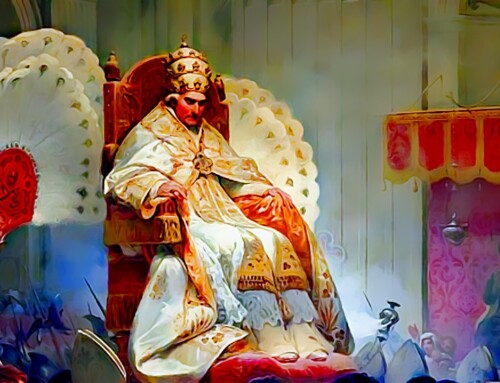
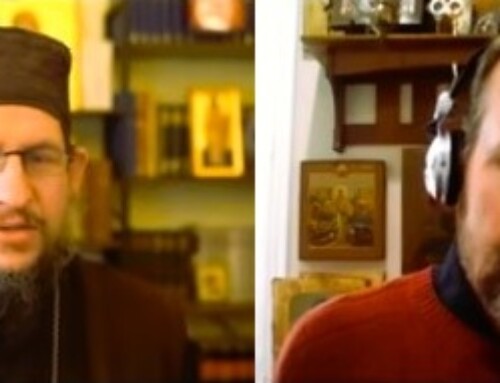
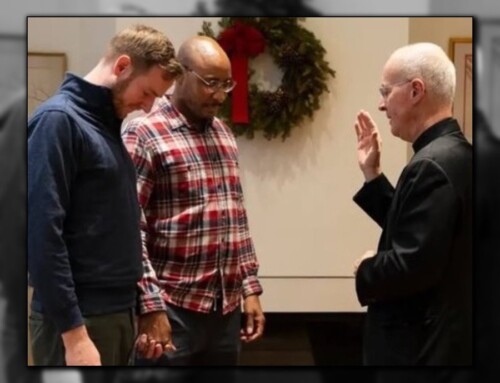
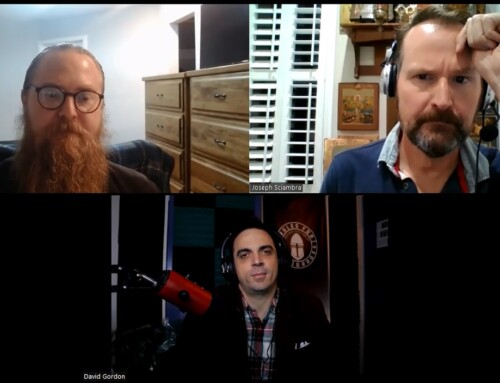
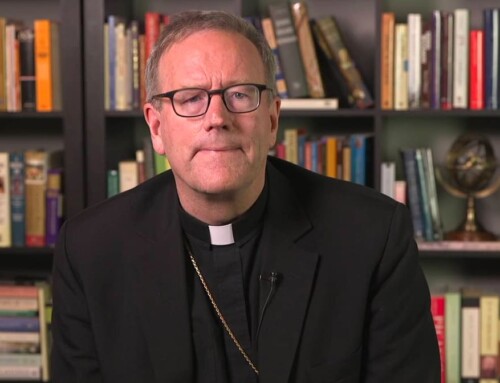
I would like to share with you my experience with a pilgrimage to the Vatican in 2007, when I went to confession at St Peter’s and the confessor advised me to settle into a “gay” relationship. I knew it was intrinsically wrong, so it never happened. After a series of losses starting with the death of my mother in 2009, death of a very good friend in 2010, death of my brother 2012 and major heart surgery six weeks later, God was telling me it was time to come home and leave the “gay” life. So I gave up my friends and began to follow Christ. I cannot tell you the freedom I have had since I made that decision, God rescued this “prodigal son”.
God bless you my Brother; you will be in my prayers.
Joseph, your story and your humble affirmation of the Gospel are an inspiration to me. The Lord is working through you to bless the lives of many.
“Since, then, you have been raised with Christ, set your hearts on things above, where Christ is, seated at the right hand of God. Set your minds on things above, not on earthly things. For you died, and your life is now hidden with Christ in God. When Christ, who is your[a] life, appears, then you also will appear with him in glory.” ~Colossians 3:1-4
The Gospel of Christ is not something we grasp intellectually, then moving on with the “real” work of being “good Christians”.
No!!!
The cross of Christ is our daily and ever present reality. Christ lives in us!!! It occurs to me, Joseph, that the best way to avoid Christ is to avoid the reality of our sin. Thank you for your willingness to bear the cross chosen for you. The day when Christ takes you in his arms and welcomes you to the fullness of his new creation….won’t that be a day of glad rejoicing????? I will be there with you!
God Bless you, Joseph!
-Jeff
You wrote a great entry! I think it will help to clarify issues for many people. Thank you for all of the work you do.